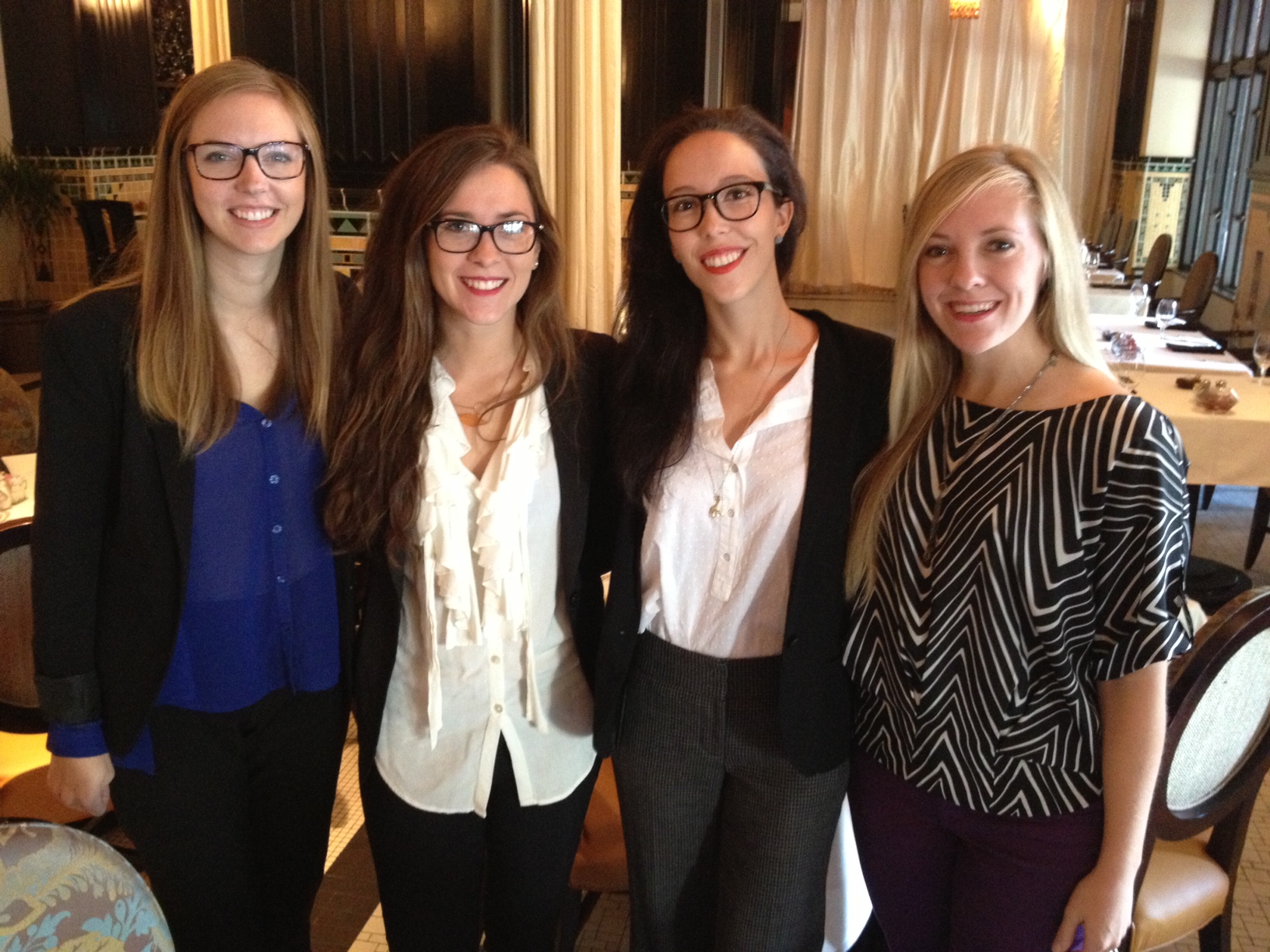Architecture students win first place in design competition
Thursday, November 21, 2013


The AIA region sponsored the student design competition during its annual conference
in Oklahoma City. The students competed in a 16-hour design charette where they were
charged with designing a new downtown elementary school for Oklahoma City. Two OSU
teams competed with teams from University of Oklahoma, Kansas State University, Drury
University and University of Nebraska. Each team was comprised of four members.
Fifth-year architecture students Taylor Dearinger, Lauren Snow, Sarah Turner and Sara Williams received a $1,000 prize to be split among the team members. In addition, the School of Architecture will host the traveling trophy on display until next year’s competition.
“The OSU architecture program is well-known for the ability of our graduates to be top-notch architects, excelling in design and problem-solving,” said Randy Seitsinger, professor and head of the school. “The ability to analyze a complex problem and develop a strong conceptual solution quickly is very important and this was exactly what this competition tested. “
“I thought the solutions from all of the student teams were thoughtful and impressive, which speaks highly for the quality of architectural education in this region. The winning design was especially interesting. It addressed the issue of the school being in an urban environment very well and provided a strong and clear concept for the school facility. These four young ladies have all been exemplary students and I expect them to be very successful as architects in the future,” said Seitsinger.
“We took away an appreciation for the amount of knowledge and abilities the OSU program has provided for us. Winning this competition was a reminder that the education we have received has prepared us to design thoughtfully under any kind of circumstances that could come our way, not only in school but also in the professional world,” said Sarah Turner, senior from Tulsa.
“The most challenging aspect of the competition was definitely the time restraint. With a similar program in a studio project we would usually have six weeks to design, but for this competition we only had sixteen hours. Although the time restraint was challenging, it forced us to make decisions as a team quickly and efficiently, focusing on solving the larger problems of the project to make the greatest impact,” said Turner.
